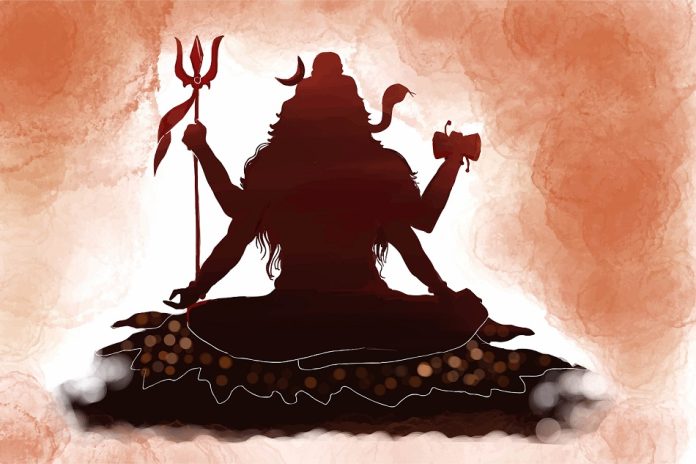
The tapestry of Hindu spirituality is woven with a rich array of rituals and ceremonies, each holding profound significance and carrying the legacy of centuries. Among these, the practice of “Rudrabhishekam” stands as a remarkable embodiment of reverence, devotion, and connection with the divine. Rooted in the Vedic tradition, Rudrabhishekam is a sacred ritual performed to honor Lord Shiva, the cosmic destroyer and the embodiment of transformation.
The Essence of Rudrabhishekam:
The term “Rudrabhishekam” can be broken down into two components: “Rudra” referring to Lord Shiva, and “Abhishekam” denoting the ceremonial pouring of sacred offerings, often involving liquids like milk, water, honey, and ghee, over a deity’s idol or representation. In essence, Rudrabhishekam is an elaborate and ritualistic form of ablution and adoration, where devotees express their devotion, gratitude, and seek blessings from Lord Shiva.
The Rudrabhishekam Ritual’s Roots and Significance:
Rudrabhishekam finds its roots in the ancient Vedic texts, particularly in the Yajurveda. The ancient scripture “Shri Rudram” from the Yajurveda is at the heart of this ritual, containing hymns and praises dedicated to Lord Shiva. This powerful chant is an integral part of Rudrabhishekam, forming the very foundation of the ceremony.
The significance of Rudrabhishekam extends beyond the physical act of pouring offerings. It is believed to cleanse the inner and outer self, purify one’s thoughts, and create a harmonious balance between the material and spiritual aspects of life. Through this ritual, devotees seek divine intervention in removing obstacles, granting boons, and fostering spiritual growth.
The Rudrabhishekam Ritual’s Performance:
The performance of Rudrabhishekam is a meticulously orchestrated event, conducted under the guidance of Vedic scholars or priests who are well-versed in the intricacies of the ritual. The ceremony usually takes place in temples dedicated to Lord Shiva, though it can also be performed at home with proper guidance. The process involves anointing the Shiva lingam, a symbol of Lord Shiva’s divine energy, with various substances while reciting the sacred Rudram hymns.
The Rudrabhishekam Ingredients and Offerings:
The offerings used in Rudrabhishekam hold symbolic meanings. Milk symbolizes purity and the nurturing aspect of the divine. Honey represents sweetness and grace. Ghee signifies enlightenment and the dispelling of ignorance. Water signifies cleansing and renewal. Other items like curd, coconut water, and various sacred herbs may also be used.
Spiritual Significance of Rudrabhishekam:
Rudrabhishekam is not merely a ritual; it’s a transformative spiritual experience. The act of pouring offerings is seen as a metaphor for surrendering one’s ego, desires, and attachments to the divine will. As the offerings are poured, devotees often chant mantras or the revered “Om Namah Shivaya,” aligning their thoughts and intentions with the divine vibration.
The Unity of Devotees:
Rudrabhishekam is often performed in the presence of a community of devotees. This collective energy amplifies the ritual’s potency and creates an atmosphere of shared devotion. The synergy among the participants fosters a sense of oneness and interconnectedness, transcending individual differences.
In conclusion, Rudrabhishekam stands as a radiant jewel in the crown of Hindu spirituality. Its roots trace back through the corridors of time, a bridge connecting devotees to the ancient Vedic heritage. The ritual’s essence lies in its capacity to transcend the boundaries of mere ceremony, becoming a channel through which devotees establish a profound connection with the divine. In the sacred dance of pouring offerings, believers find a means to cleanse their souls, seek blessings, and journey closer to the heart of Lord Shiva’s eternal grace.
























































